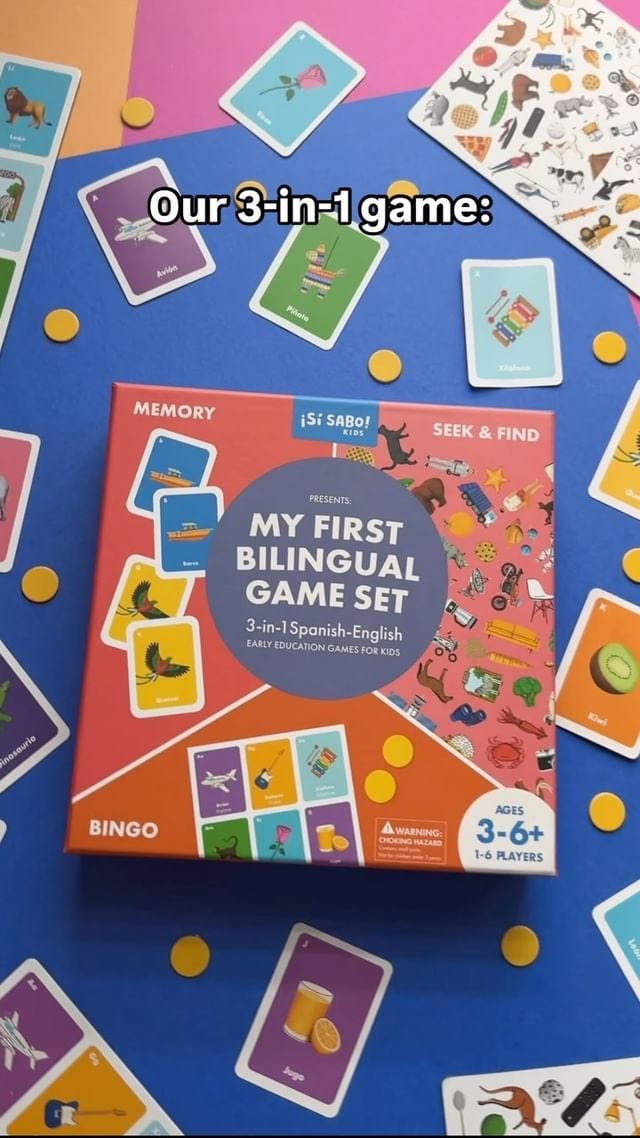“It's hard to put a price on the time that you spend away from your family.”
Mike Alfaro discusses how Millenial Lotería and Si Sabo Kids work to transform the narrative about immigrants in the U.S.
Concluding our three-part conversation with creative director, author, and designer Mike Alfaro, we begin by centering a question at the heart of La Cuenta: what are the invisible costs that members of the undocumented community incur in this country? From this question, Mike delves into the personal connections to immigration and the broader vision that drives much of his work.
If you missed the first two parts of our conversation, you can find them here:
Antero Garcia: Our name, La Cuenta, is meant to emphasize the invisible costs of undocumented survival in this country. Given your work across many different products, if you could imagine a bill for the undocumented community in this country, to present to the government, what would you put on it?
Mike Alfaro: When you say a bill, you mean something that…
Alix Dick: Not just financial numbers but also the invisible cost. These include the invisible cost that we pay to be here like mental health, missing our family back home when you're not able to see them.
MA: I think the cost for me isn't necessarily something that I would put monetarily. It's hard to put a price on the time that you spend away from your family. My sister can't come to the US. She doesn't have a visa. She's been denied visas many times and for X reasons, and so she couldn't be at my wedding. She can't come visit me, she hasn't met my daughter yet, and it's that cost of moments that you miss. I went through the H-I visa process. There were sometimes where I couldn't work legally in the United States where I was like, "Oh, why can't I work? Why can't I provide? Why can't I give back to this country?" "Because you don't have a work visa."
That's wild. For me, there was a pressure as well of when you're on H-1B visa, you know that if you get fired from your job, you don't have a legal way to stay in the United States. Automatically, you go from someone who's legally here in the United States working to someone who all of a sudden is not permitted to be in the United States. And if you overstay, then they're like, "Well, you're never coming back to the United States. You're never going to get a visa again." So you really have to play by these rules that sometimes are changing.
Nobody teaches you this when you come in to the United States.
[My sister] can't come visit me, she hasn't met my daughter yet, and it's that cost of moments that you miss.
It’s those moments that you miss. It's those opportunities that you wish you could have. Once I got my green card, it felt like freedom.I hear people in the government really talking a lot about DACA and pathways for citizenship. But then when the chances come, where are they? Where are these things? I really do think that for DACA, there needs to be a process for citizenship. I've been lucky to be able to go through the legal process and spend so much money on it. But it hasn't been easy, there's so many hoops. There's so much financial investment. There's so much waiting and pressure on you that I know how easy it is for someone like me to, in the blink of an eye, with one little wrong check mark on something, one little missed deadline to become undocumented, to become someone who is not wanted in the United States. It's sad to me that there are other people who have gone through those situations and that there's not a lot of resources for them to be able to do it.
So, I understand how hard it is. That's why I always try to make sure that we are positively highlighting the undocumented community. That we are highlighting the benefits of immigrants in this country which vastly outweigh the negativity and stereotypes that come.
When I came to the United States, people would ask me, "Did you own a cellphone in Guatemala? Did you have internet growing up there?" I remember somebody asked me, "Did you live in trees?" I was like, "Are you kidding me?" I was getting this culture shock realizing that people have this really outdated idea of what it's like to come from a country like Guatemala.
AD: Or Mexico! People think we ride horses and we don't have cars.
MA: Exactly. Millennial Lotería for me was another way to push back against this narrative to show how modern we are, how technologically savvy, smart, funny, sexy.
AD: Creative.
MA: Creative. Everything, that's part of who we are. And so, this product really helped me push back against the narrative that immigrants are criminals and all the stuff that politicians have been saying. This game, really, was all that anger, all that pent-up things that I had inside from in the United States from being here, put out in art, in a positive way.
I think that's why so many people connect with it. So many people feel the way I do about how Latinos are portrayed in this country, whether you're undocumented, or an immigrant or first, second, third generation. I think that's why this game, that's why the books, that's why all these things are having a success. I'm hitting on something, a nerve, that hasn't been hit on as much as it needs to be for our society.
That's why I keep doing what I'm doing. Everything I do, I want to make sure, gives Latinos a positive way to understand their culture, share their culture, speak Spanish. The United States is the second-largest Spanish-speaking country in the world. People need to learn Spanish here. We're a huge force and I think we have to start to act like it.
This game, really, was all that anger, all that pent-up things that I had inside from in the United States from being here, put out in art, in a positive way.
AD: I love that. When I moved to United States, I was really shocked by the fact that people thought that speaking Spanish was just for lower class people. The fact that you are working on this, it makes me really proud. We’re teaching our kids that Spanish is beautiful and English is not a superior language.
MA: You can make so much money if you're bilingual. I always tell people that. People need to be talked to in their language. They have a lot of buying power. They have needs, they have wants, and there's companies out there that will pay a lot of money to reach these consumers.
Let me tell you, I don't pitch brands to work with me. I don't pitch anyone to do anything with me. They come to me. I've worked with Disney, TikTok, Pringles. I just worked with Walmart, Target. People reach out to me like, "We like your stuff. We want to reach these consumers." They're looking for the people that can authentically reach people and talk to them. I think if you know Spanish, if you start to teach your kids not only about Spanish, but about the culture, you're going to have people out there who are very prepared and very ready to take on the needs of the market. Latinos, we're not going away.
AD: No, we're not.
MA: Spanish is going to get bigger. Latinos, we're going to get bigger. It's time to make sure that the youth and the culture is prepared for what's going to happen in the future. I think a lot of people who are not Latinos … I feel like there's going to be a little bit of backlash as there always is. But it's up to us to just keep making sure and changing people's minds that there's nothing wrong with Latinos. Our culture's amazing. Our culture's great. And you see America already becoming part of the culture even if you don't know it yet.
AD: very slowly but we're getting there.
MA: We're getting there, and we'll be there. We just got to be ready and keep going.
Propina
We would like to thank Mike Alfaro for sharing his time with La Cuenta and our readers. If you are interested in any of the projects that he discussed, check out Si Sabo Kids here and Millenial Lotería here.
We’ll see you next week.










